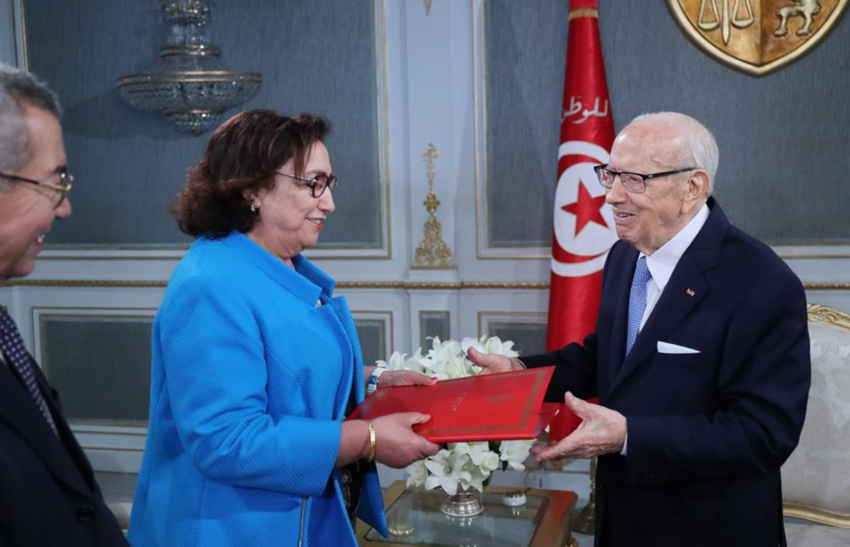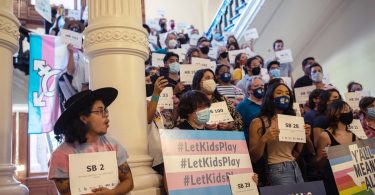COLIBE President Bochra Bel Haj Hmida hands over law reform suggestions to Tunisia’s President Béji Caïd Essebsi. | Photo: Colibe
Tunisia might reconsider its ban on homosexuality after a special committed recommended it to the President.
The North African country criminalizes gay sex where it carries a jail sentence of up to three years.
But the country’s Individual Freedoms and Equality Committee (COLIBE), has just made a number of recommendations about law reform.
Current President, Béji Caïd Essebsi, formed COLIBE last year and it is made up lawmakers, academics and human rights advocates.
COLIBE’s objective is to contribute ‘to the state of individual freedoms and equality in Tunisia through the preparation of a reform project in accordance with the requirements of the Tunisian Constitution of 2014 and international human rights standards’.
The Committee submitted its final report to Essebi with a list of recommendations, including scrapping Article 230 of the Penal Code which criminalizes gay sex.
‘The state and society have nothing to do with the sexual life amongst adults … sexual orientations and choices of individuals are essential to private life,’ the report reads.
‘Therefore the commission recommends canceling [article 230], since it violates the self-evident private life, and because it has brought criticism to the Republic of Tunisia from international human rights bodies.’
COLIBE recommended that if Article 230 is not removed altogether, the government should consider lowering the punishment for gay sex.
It recommended that the government drop the penalty to a fine of 500 dinars (US$200).
Human Rights Watch’s Neela Ghoshal specializes in LGBTI research in Africa. She said the report’s recommendations on homosexuality were a big deal.
‘(They) may not result in immediate change, but provides fuel for the dynamic LGBT rights movement in Tunisia,’ she wrote on Twitter.
Other recommendations in the 253-page report also included scrapping the death penalty and improving women’s rights.
LGBTI rights in Tunisia
LGBTI activists in Tunisia are very active, despite the threat of punishment.
Earlier this year they held demonstrations protesting the gay sex ban and even hosted the country’s first LGBTI film festival. But police shut down the demonstrations for the protesters ‘own security’.
The Tunisian government has in the past made positive moves for the LGBTI community. Last year, it banned forced anal and genital torture that ‘test’ for being gay.
But advocates say the government still has a long way to go to make LGBTI free and equal in Tunisia.







